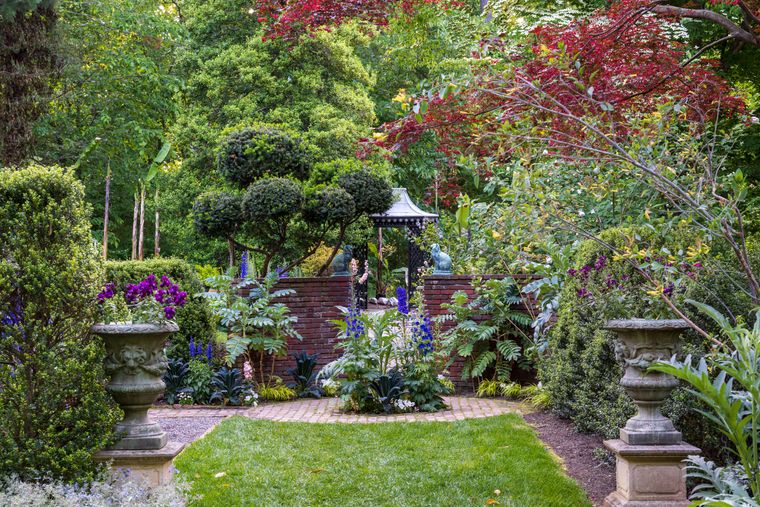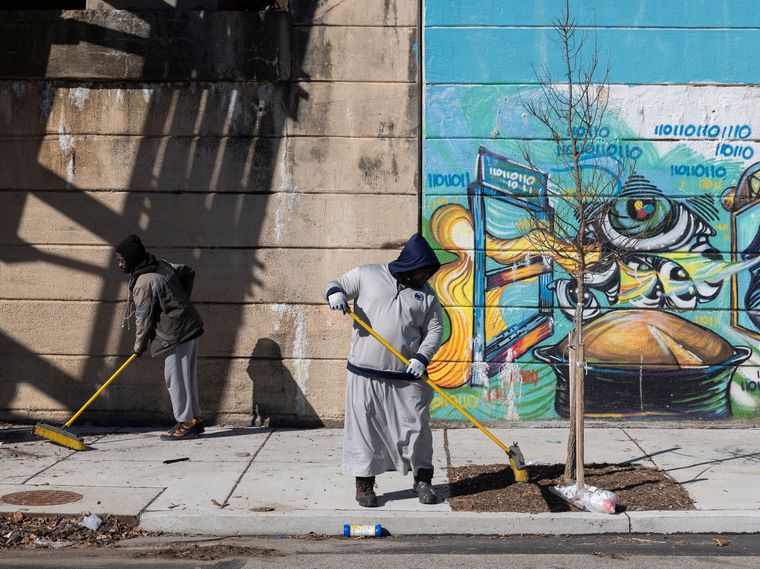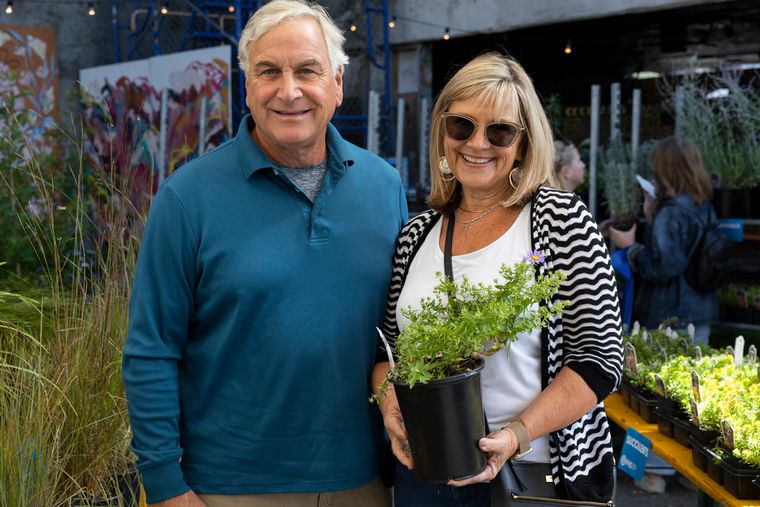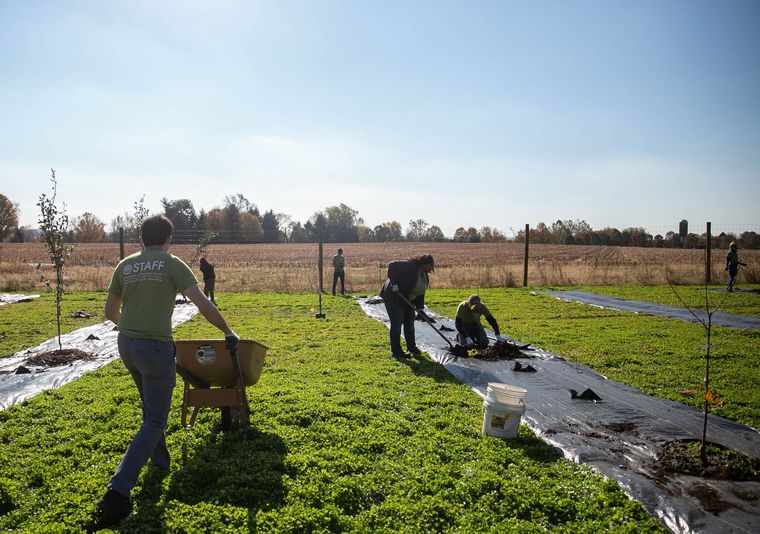



How to Design a Garden that Corporate Employees Will Love
garden inspiration
gardening projects

Incorporating a garden into a corporate campus can positively impact the surrounding environment as well as employee health, education, and general well-being. And when the focus of the garden design is on ecological, resilient, and sustainable approaches, the initiative can be implemented in a cost-effective and environmentally friendly way.
In collaboration with the Pennsylvania Horticultural Society (PHS), Subaru of America’s corporate campus in Camden, NJ supports their ongoing commitment to a healthier Earth. The landscape features year-round gardens that keep the campus lively, promoting both employee satisfaction and environmental sustainability. PHS Manager of Design and Procurement, Sam Keitch, discusses what considerations had to be made to create a durable, diverse garden that Subaru employees would love.

Choose Plants with Intention
At the Subaru headquarters, Sam had to consider what plants would support the surrounding wildlife, as well as how to incorporate both PHS’s Gold Medal Plants and non-invasive species. He also had to navigate finding a local nursery to supply plants and choosing plants that have little to no dependency on chemicals such as fungicides, herbicides, and insecticides, in keeping with PHS’s and Subaru’s values.
Support Wildlife
Supporting the surrounding wildlife is a main priority when planting corporate gardens. Large campuses often displace wildlife, including pollinators and birds, forcing them to find alternative means to sustain life. Incorporating plants that produce nectar and seeds for pollinators and birds helps create a diverse environment for insects and birds to flourish.
Pick Gold Medal Plants
PHS’s annual selection of Gold Medal Plants is chosen in collaboration with professional gardeners, horticulturists, nursery owners, and growers. Ease of cultivation, multiple seasons of interest, commercial availability, appropriateness for the Mid-Atlantic region, and value to wildlife are all taken into consideration when choosing the year’s winners. Using these plants in a corporate garden helps ensure the depletion of invasive species and reduces the dependency on chemicals that would harm the surrounding area. “One of the parameters for Gold Medal selections is their ease of establishment and growth, so for all of the winners, we selected the urban-tolerant varieties,” says Sam. He explains why these plants were the best options, saying: “They were originally plugs and have thrived in the hot environment, which ultimately is the best way to suppress weed species.”
Subaru wanted their landscape to mimic a meadow rather than a manicured landscape. To accomplish this, Gold Medal Plants — Agastache ‘Blue Fortune’, Salvia nemorosa ‘Caradonna’, and Cornus sanguinea ‘Midwinter Fire’— as well as native plants — coneflowers, bee balm, joe pye weed, and gayfeather — were used together.
Sam explained that there was an emphasis on striking a balance between predominately native plants and other varieties. He says, “The site does appear very naturalistic, and the additional color throughout the seasons just adds to the highly visible corridors. There are plenty of ecological elements, but we wanted some sections to be uplifting gardens for the staff to look out onto during the day. Maintenance was also factored into the species percentages, so each zone, of which there are twenty-eight, is really its own palette.”
Avoid Chemicals by Buying Local
Buying plants from local nurseries can help guarantee there is no use of harmful chemicals. Local nurseries are often neonicotinoid-free, so this minimizes neonicotinoids killing any pollinating insects that feed on the nectar of plants. Avoiding any contamination is possible by sourcing plants carefully. For Subaru, Sam prioritized purchasing plants from local nurseries. “We have used five nurseries over the years, all of which are in the nearby area, but the majority of plants were custom grown by North Creek Nursery, and then other additional areas were supplied by New Moon Nursery on an as-needed basis. We always keep in mind what we are bringing to the site, and it has come a long way from being completely barren.”

Think of your Garden as Part of the Ecosystem
Gardens on corporate campuses support and maintain much more than just the buildings they surround. The gardens become a part of the ecosystem and as such, should do their job in upholding a beneficial environment for all species of plants and animals.
One of the largest benefits gardens have to the ecosystem is the elimination of fossil fuels and pollutants. When gardens are planted on corporate campuses, the amount of lawn space is decreased. This results in a decrease of fossil fuels that are required to mow and otherwise maintain the lawn area. These fossil fuels contaminate stormwater run-off, negatively impacting the surrounding ecosystem. New plantings require little inputs including fossil fuels, no synthetic fertilizers, and no pesticides or insecticides. This significantly mitigates pollution and stormwater run-off.
Biomass, or organic matter coming from living organisms and their byproducts, contributes greatly to the fertilization and health of the new garden. Biomass is naturally composted on site and nourishes the soil around the plants. This eliminates the need for synthetic fertilizer and other chemicals, reducing pollutants to the ecosystem. “The maintenance of Subaru is really all about broad strokes, and the only additional soil element that we’ve used is a light topdressing of hardwood mulch and compost (leaf mold),” says Sam. His interest in Korean farming techniques was applied to the gardens at Subaru, and he says: “I have been learning about Korean farming techniques recently, which takes an anaerobic culture and scales the native micro-organisms and reintroduces them to the site. I feel that this is akin to flexible compost tea applications and is very sustainable.”
Gardens on corporate campuses do not need to be hard to maintain. Installing drought-tolerant plants, or those requiring little inputs like water and fertilizer, allow the gardens to remain healthy and beneficial to the ecosystem without causing more work for employees or corporations.

Loving Where You Work
The creativity that is apparent in these gardens inspires both employees and visitors. Subaru of America’s campus showcases Sam’s application of multiple disciplines, where bold horticulture drives the planting design, and sustainable practices are integrated into the installation and maintenance programming.
The gardens are a central hub to share and promote plants through regular plant sales of native pollinator plants and Gold Medal Plants, and for employees to enjoy throughout their workday.
Want more gardening tips and tricks? Sign up for our monthly newsletter.


